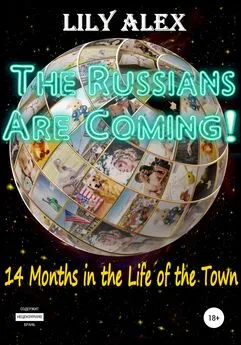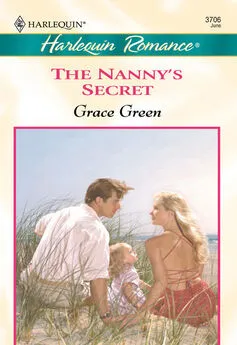Greg Iles - The Devils Punchbowl
- Название:The Devils Punchbowl
- Автор:
- Жанр:
- Издательство:неизвестно
- Год:неизвестен
- ISBN:нет данных
- Рейтинг:
- Избранное:Добавить в избранное
-
Отзывы:
-
Ваша оценка:
Greg Iles - The Devils Punchbowl краткое содержание
With his gift for crafting “a keep-you engaged- to-the-very-last-page thriller” (USA Today) at full throttle, Greg Iles brings back the unforgettable Penn Cage in this electrifying suspense masterpiece.
A new day has dawned . . . but the darkest evils live forever in the murky depths of a Southern town.
Penn Cage was elected mayor of Natchez, Mississippi—the hometown he returned to after the death of his wife—on a tide of support for change. Two years into his term, casino gambling has proved a sure bet for bringing new jobs and fresh money to this fading jewel of the Old South. But deep inside the Magnolia Queen, a fantastical repurposed steamboat, a depraved hidden world draws high-stakes players with money to burn on their unquenchable taste for blood sport and the dark vices that go with it. When an old high school friend hands him blood-chilling evidence, Penn alone must beat the odds tracking a sophisticated killer who counters his every move, placing those nearest to him—including his young daughter, his renowned physician father, and a lover from the past—in grave danger, and all at the risk of jeopardizing forever the town he loves.
From Publishers Weekly
Iles's third addition to the Penn Cage saga is an effective thriller that would have been even more satisfying at half its length. There is a lot of story to cover, with Cage now mayor of Natchez, Miss., battling to save his hometown, his family and his true love from the evil clutches of a pair of homicidal casino operators who are being protected by a homeland security bigwig. Dick Hill handles the large cast of characters effortlessly, adopting Southern accents that range from aristocratic (Cage and his elderly father) to redneck (assorted Natchez townsfolk). He provides the bad guys with their vocal flair, including an icy arrogance for the homeland security honcho, a soft Asian-tempered English for the daughter of an international villain and the rough Irish brogue of the two main antagonists. One of the latter pretends to be an upper-class Englishman and, in a moment of revelation, Hill does a smashing job of switching accents mid-sentence.
The Devils Punchbowl - читать онлайн бесплатно полную версию (весь текст целиком)
Интервал:
Закладка:
To my surprise, the spotlight goes dark, but I cant pick Caitlins face from the red afterimage floating before my eyes. As I said, those relief checks are being issued by the federal government; therefore, fraud in obtaining them falls under federal jurisdiction. I suggest you speak to the FBI or the Department of Homeland Security.
I intend to.
Good luck. Thank you, ladies and gentlemen. Enjoy the festival.
The knot of reporters breaks up quickly, leaving Caitlin and me with two techs packing equipment. My eyes having recovered, I see immediately that she looks as good as she ever did, unique among the women I meet in my daily life. Caitlins bone-white skin, her waterfall of jet black hair, and her startling green eyes combine to radiate an almost disconcerting sense of self-possession. This woman is smart, you sense on meeting her, probably too smart for her own good, or anybody elses.
You want to walk? she asks.
Sure.
She gives me an easy smile and starts away from Rosalie, walking across the head of Silver Street, the hill road that leads down to one of our casino boats, then toward the bluff proper. Caitlin leads me along the fence, on the asphalt path laid by the Corps of Engineers when they reinforced the bluff. Eighteen inches beyond the fence, the land drops like a cliff to the banks of the river below.
You never were much of a walker, I comment, unless you were headed somewhere specific.
She laughs softly. Maybe I've changed.
I murmur in surprise.
So hows it going? she asks, her words banal but her tone something else altogether.
When you practically live with someone for six years, you come to know their rhythms the way you know your own. Their way of talking, the way they breathe, sleep, and walk. Changes in those things communicate messages if you pay attention, but as I walk beside my old loverold in the sense of long experience togetherI find that our separation has dulled my perception of her secret language. That is if she means anything beyond her literal words. Maybe in this case a walk is just a walk.
Its been hard, I say quietly. Its tough to admit you were wrong about something, and even harder to admit someone else was right. Harder than I thought it would be.
People don't like change, she says. I see it every day, wherever I go.
You said you've changed.
Her green eyes flicker. I said maybe.
The small park weve entered was the main venue for festivals when I was a child, the white gazebo atop the bluff a gathering place for painters and musicians and even ham-radio operators, who came because the ground was the highest for miles around. At the gazebo steps, I let her ascend first, watching the clean line of her shoulders, the graceful curve of her back. God, I've missed her. She walks to the rail and looks out into the night sky over the river.
It smells the same, she says.
Good or bad?
Both.
Across the river, lines of headlights move east and west on the main highway crossing the hard-shell Baptist country of Louisiana. Twelve miles into that darkness, Jerry Lee Lewis and Jimmy Swaggart were raised under the flaming shadows of God and Satan, while around them sharecroppers toiled in the cotton and sang their pain to the uncaring fields.
People think they're in the South when they're in the Carolinas, she says. And they are, I guess. But this place is
still
the South, you know? Its unassimilated.
I murmur assent, but I still don't engage in conversation, preferring to study her from an oblique angle. This is the closest I have been to Caitlin in months. In a crowd of Mississippi women she stands out like a European tourist. In our moist, subtropical climate, the milk-fed, round-cheeked faces of the belles usually last until thirty-five, like a prolonged adolescence. This beauty seems a gift at first, but when it goes, the rearguard action begins, a protracted battle against age and gravity that leaves many with the look of wilted matrons masquerading as prom queens. Plastic surgery only makes the masks more startling in the end. Caitlins face is all planes and angles, a face of architectural precision, almost masculine but not quite, thanks to feline eyes that shine like emeralds in the dark. Her every movement seems purposeful, and if she has nowhere to go, she stands like a soldier at rest. She never drifts. And remembering this, I realize that this walk is not just a walk.
What brought you back here? I ask softly.
She hugs herself against the wind shooting up the face of the bluff. Katrina.
This answer is certainly sufficient, but it seems too easy. Youre covering the aftermath?
I'm taking it in. Trying to process it. I've heard a lot of disturbing things about what happened down there. The Danziger Bridge shooting, wide-open rules of engagement. The administrations response on the humanitarian side, or lack of one. Talk about too little, too late.
Theres nothing original in this view. And I'm not much interested in a privileged publisher taking a luxury tour through the dark side of our national character. This reminds me of Caitlin as I first met her, a Northern dilettante who preached liberalism but who had no experience of the world outside a college classroom or a newspaper owned by one of her fathers friends.
Disturbing things happen everywhere, I say, all the time. In Natchez, in Charlotte, wherever. You can find a window into hell a mile from wherever you are, if you really want to.
She inclines her head, almost as though in prayer.
I didn't mean to sound so cynical, but I have little patience with selective outrage. You could just as easily be doing a story on how the white Baptist churches are sheltering black refugees, but that
won't sell as many papers as a white-cops-shoot-black-civilians story, will it?
You always kept me honest, didn't you?
And you, me.
She turns from the rail, and her green eyes throw back reflections of the streetlamps behind me on Broadway. A thumping bass beat booms from the tavern across the street, then a blast of calliope music blares dissonant counterpoint from below the bluff.
Wow, Caitlin exclaims. The boats must really be crazy tonight.
With a start, I realize that for a few peaceful minutes I haven't thought of Tim Jessup. I really should get back to Annie, I say, suddenly anxious about the depth of my need to be near Caitlin. I've got a really long day tomorrow.
No doubt. I heard youre on the morning flight, she says with a knowing smile. Is that true?
No way out of it, I'm afraid. I'm schmoozing a CEO who could bring a new plant here.
I heard. You think you may swing that, Mayor?
No comment.
She laughs dutifully, but her eyes are troubled. I cant read you like I used to.
I know how you feel. Despite my anxiety, I realize that the dread I felt earlier has been replaced by an exhilarating feeling of lightness under my sternum, as though I've ingested a few particles of cocaine along with Caitlins words. An electric arc shoots through me as she takes my hand to lead me down the steps.
Is Annie with your mother? she asks. The path along the bluff is filling up with people preparing to watch the fireworks display across the river in Vidalia. I haven't seen your parents in so long. I feel bad.
They still talk about you. Dad especially. I don't want her to ask any more about Annie. I don't feel she has the right to, really.
You know, Charlottes not what I thought either, she says.
No?
Its a lot smaller than I expected. Boston too. I'm starting to think that no matter where you go, its basically a small town. The newspaper business is a small town. L.A.s a small town.
Paris
is a small town.
Maybe those places only look small from the window of a limo. When you have the phone number of everybody who matters.
She doesn't respond to this, but after a moment she lets my hand fall. As we near the festival gate, she stops and gazes at me without the guard of irony up. That's the question, isnt it?
What?
Who matters?
Yep.
Her eyes hold mine steadily as the crowd swirls around us. Whats your answer?
That's easy. Annie.
Touché. Youre right, of course. She looks back toward the carnival lights beside Rosalie, brushes the black veil of hair away from her face. This feels strange. So familiar, and yet I don't know. You don't seem quite yourself. She tilts her head and tries to penetrate the time that hovers between us like an invisible shield. Is it just me? Or is something really wrong?
What are you doing here, Caitlin?
Her eyes narrow. I told you. Working a story.
A New Orleans story?
She glances away for the briefest of moments. There might be a Natchez angle.
Before I can ask about this, a male voice cries her name twice in quick succession.
There
you are! says the newcomer, a handsome man of thirty-five who disengages from the chaos with some difficulty. He has a bohemian lookbohemian chic might be more accurateand he clasps Caitlins right hand in both of his. I've been looking all over for you. I ended up down at the stage, talking to some gospel singers. Theyre fantastic!
Caitlin casually extricates her hand and introduces me as the mayor of Natchez. The bohemians name is Jan something.
Jans doing a documentary on the Danziger Bridge incident.
Bridge
massacre,
Jan corrects, as though quoting the title of the film.
On the Danziger lift bridge in New Orleans, four white cops responding to an officer down call received sniper fire from a group of black men, returned fire, and killed two of them. The black group later contended that they had been unarmed. As with so much
of what happened in the first days of Katrinas flood, no one has yet been able to ascertain what really transpired. I'm sure theyll eat that up in Park City, I say with a brittle Chamber of Commerce smile.
Jan draws back in momentary confusion, and Caitlin looks startled. I usually cover my emotions better than this, but tonight I just don't give a damn.
You guys have fun. I need to find my daughter.
And with that I'm away from them. I couldn't have stood much more, and that knowledge frightens me. Yet as I walk through the festival gate, making for the flashing neon above the rides grouped on the bluff, its not heartache that preoccupies me, but some of Caitlins last words:
working a story . There might be a Natchez angle.
As improbable as it seems, I wonder if shes somehow picked up the rumors of dogfighting, prostitution, and illicit drugs surrounding the
Magnolia Queen.
A word from one of her local reporters would be enough to pique her interest, and every facet of that story would engage her. If Caitlin does have reporters working that story, she might well elide it from any conversation with me. At one time we told each other everything. But as our relationship wore on, we found that the professions of lawyer and journalisteven novelist and journalistgave us separate agendas where privileged information was concerned, and that led to conflict.
Thirty yards ahead, I glimpse the familiar rounded line of Libbys shoulders, and a blade of guilt pierces me. Though weve officially ended our intimate relationship, it would hurt her to learn that a few moments with Caitlin affected me so deeply. As I near Libby, Annie and a friend cannonball through the exit of the Space Walk and roll squealing onto the ground beside her. Only now do I remember that I need someone to stay with Annie while I'm out on tonights midnight rendezvous. Theres little chance of getting a high school sitter this late on a balloon-race Friday; I'll have to ask my mother to spend the night at my house.
Читать дальшеИнтервал:
Закладка:





![Джеймс Купер - Пионеры, или У истоков Саскуиханны [The Pioneers, or The sources of the Susquehannah]](/books/1066142/dzhejms-kuper-pionery-ili-u-istokov-saskuihanny-t.webp)




